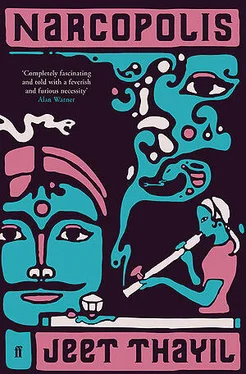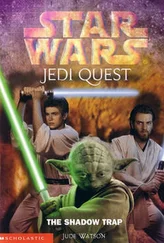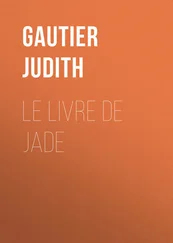*
He got the shits when the garad wore off. The toilet was a hole in the floor that was impossible to locate because there was so much shit around it, weeks and months and years of shit. He stood in his shoes, pulled his pants down and added to the pile, trying not to breathe through his nose. Then he went back to his spot on the floor and yawned and shivered through his withdrawal. There were bodies all around him, silent men with their hands on their valuables, if they had any, and he lay in his spot, his eyes and nose streaming, until one of the bodies appeared beside him, a tall pig-nosed Iraqi who materialized from a puff of beedi smoke and asked if he had money and if he wanted garad. Rumi bought three pudis and snorted two off his hand and only then did the shits stop. He also bought beedis from the Iraqi and he smoked them carefully, half a beedi at a time, and when he got to the end he untied the string and opened the leaf and saved what little tobacco remained. That night Rumi sat in his sleeping spot, surrounded by the bodies of thieves and faggots and murderers and atheists, and he thought about doubt. He thought: Doubt is another word for self-hate, because if you doubt yourself and your position in the world you open yourself to failure. You have no place among men. You are the carrier of a virus and you’re contagious and you should be put down, because doubt is the most dangerous indulgence of them all, more dangerous than vanity or greed, because doubt feeds on itself like cancer or tuberculosis, and unlike the sufferers of such ailments, the doubter does not deserve sympathy: doubt is a decision. He told himself, I am unkillable because I am without doubt and the saying of it will make it true. He repeated the words aloud: I am unkillable. He breathed deeply and filled himself with the stale smells of the cell, with the odours and emissions of the criminals around him. Then, aiming carefully, he spat into the corner where the murderers slept, in the best spot, under the window. There were two of them, a man who strangled his wife and two children as they slept and a man who stabbed a friend to whom he owed money, stabbed him thirty-two times and dumped his body in a drainage canal and would eventually (months later, long after the case had fallen off the pages of the local dailies) escape the death penalty on a technicality. The two murderers were unimpressive in the flesh, one was pot-bellied and asthmatic and the other was a scrawny younger guy with terrible halitosis. But they were treated like movie stars, they didn’t wear the prison uniform and they were allowed out for a walk once a day whenever they felt like it. Rumi’s gob of spit landed on the bare foot of the man who had strangled his family. He opened his eyes and wiped his foot against the floor, carefully wiped it clean. Then he sat up and looked around him until he saw Rumi. In the dim light the man’s eyes were like water. I know what you want, he said. You don’t know a thing, Rumi said. Not a single thing that makes a difference in the world. Friend, said the murderer, I’ll tell you what I know and you tell me if I’m wrong. You want to hit me and you want to be hit, you want to be beaten almost to death, isn’t that right? You want to taste blood because you’re bored and pain is preferable to nothing. Isn’t that right? I, on the other hand, prefer boredom because it’s a comfort to me. What I’m saying is, if you can’t sleep ask the Iraqi for Mandrax. I’m not going to fight you. After making the speech, the murderer flung his elbow across his eyes and lay still.
*
It was her first dream in weeks, her first sleep since arriving at Safer. She dreamed of a poster that had been on the wall of Rashid’s for more years than she could remember, a poster of a blonde girl in a sun hat. In the dream she got up from the turkey mattress and went to the window, which gave out on a lawn that was lush and green, the kind of green that hurt the eyes, it was so bright. She watched the blonde girl take off her large, her overlarge hat and place it on the lawn (and here the dream took on a cinematic quality, because she was no longer looking at the scene from a window: the frame became a kind of lens that zoomed in and out with dizzying speed), and she saw that the girl wasn’t alone, that she was in fact surrounded by an army of shadows that moved on the lawn’s periphery, moved as if their claim on the lawn and the colour green, on the sky and the colour blue, on the earth and its thousand unknowable colours, was older than hers, was so old that it could be ignored only at her peril. The girl, who was not more than thirteen or fourteen, removed her hat and placed it carefully on the ground. Then she lifted her dress or shift, a light cottony garment with a flowery pattern, and squatted above the hat and filled it with blood or shit, something, at any rate, that was black and crusted on the hat’s upturned brim. And then the words began to flicker across the bottom of the screen like subtitles and the shadowy figures who crowded around the edge of the frame moved into the centre, towards the girl, whose skin was white and rose. The camera focused on her face, on her petal-like lips that mouthed, very clearly, the word What? But the subtitles that appeared at the bottom of the window or screen said something very different: ‘You were nameless and pagan. I gave you context. For two hundred years I gave you context and how did you reward me?’ Then the girl’s eyebrows took the shape of an inverted V and she mouthed the word No . As soon as the word left her lips she was overrun by the shadows, who, as they came into the light, revealed themselves as ethnic ecclesiastical figures in robes of white or saffron, and others in skullcaps, and still others in conical hats and tattered purple. In minutes, one of the figures in purple lifted his cassock to display a great brown belly and black penis surrounded by grey fuzz. He dipped his hand into the hat and smeared himself and soon the other figures were doing the same. The camera fell to the ground as if the person holding it had been attacked or was taking part in the activities he or she had until then been recording, and when the camera was picked up again there was a close-up of a penis penetrating, very slowly, the girl's anus, and then two words began to slide across the screen, words that were repeated with each stroke, the penis now sliding to half its length in the girl’s small orifice, and there was a close-up of her face, which looked stupid more than pained, and again the words appeared, in quotes, ‘Tradition’ and ‘Values’, and the camera cut to the priest, whose face was glazed with spit and sweat and the words he spoke needed no subtitles because they were synced and perfectly audible, ‘This is India,’ and Dimple woke, her heart beating so fast she thought she might die and the thought of dying was a sudden comfort.
*
On the third day, or it might have been the second, they took him downstairs and put him in a room with a lawyer, a Muslim, who told him his bail had been arranged and they were going to try something new, they were giving him a choice between rehab and jail. Well, now, Mr Advocate, what a wonderful deal you’re offering me, said Rumi, thank you. He took a matchbox from his pocket, opened it and shook out half a beedi. He lit it and took a deep drag and when he exhaled the Muslim flinched because the smell was so strong. Thank you, thank you, thank you, for nothing, Rumi said. Jail or freedom, that’s a choice, rehab or garad, that’s a choice, but rehab or jail? That’s like choosing between death and dying. No, I take it back, it’s like choosing between syphilis and gonorrhoea. I know what I would choose, said the Muslim. I know what you’d choose too, said Rumi, but it’s the wrong choice. You want to know something? When they put me in here I thought it was all over. I thought I’d be fucked up right away, stabbed or strangled, something, for being Hindu. I thought jail would be full of Muslims and I’d be at the bottom of the undertrial hierarchy. Well, I am at the bottom, but not because I’m Hindu. Can you believe it? The Muslim said nothing. I asked myself, what does it mean that a garaduli is lowest on the ladder, lower than a ragpicker or a thief? How can it be? I asked a shooter who was in for the contract killing of a movie producer. Tell me, I said, I want to know. Why would a Hindu trust a Muslim over a garaduli? You’re a Hindu, you tell me. The shooter looked me over, as if he was measuring me for a suit or a coffin, and then he said: Garadulis will do anything. I said: Why single out garadulis? Anybody will do anything. The shooter said: Garadulis turn on their own kind — not even a pocket-maar will do that. Rumi was silent for a while and then he said, What did you bring me? News, said the Muslim, the best news you can hope for. I mean, did you bring me food and cigarettes and money? No, said the Muslim, I brought you something better, we’re getting you out: we’ve worked out a bargain with the court. Rumi said, Just leave me some cash, whatever you have. You can get it back from my father. Look, Ramesh, the Muslim said, you’re getting out, it’s all been arranged and the money’s arranged too, take it cool, don’t take so much tension.
Читать дальше












